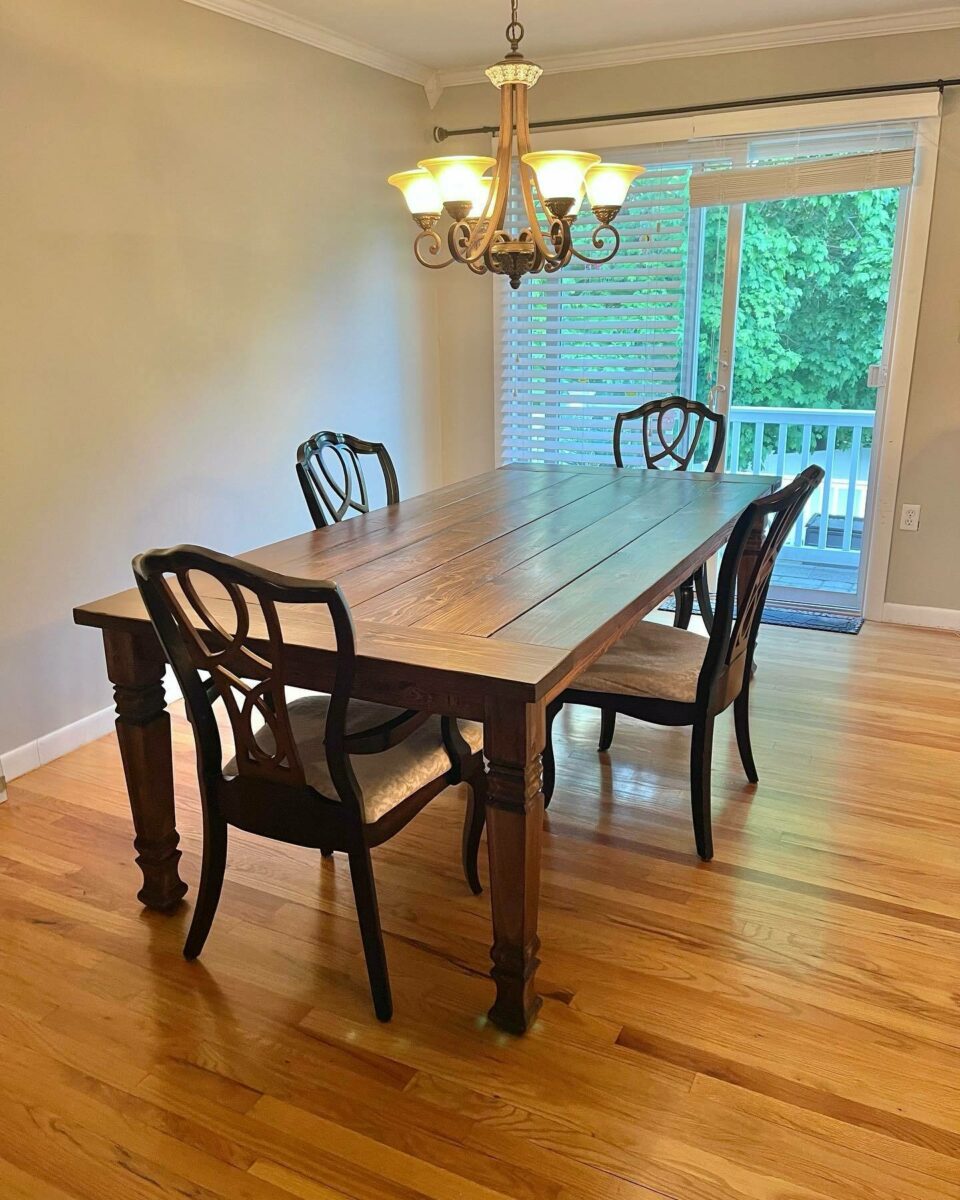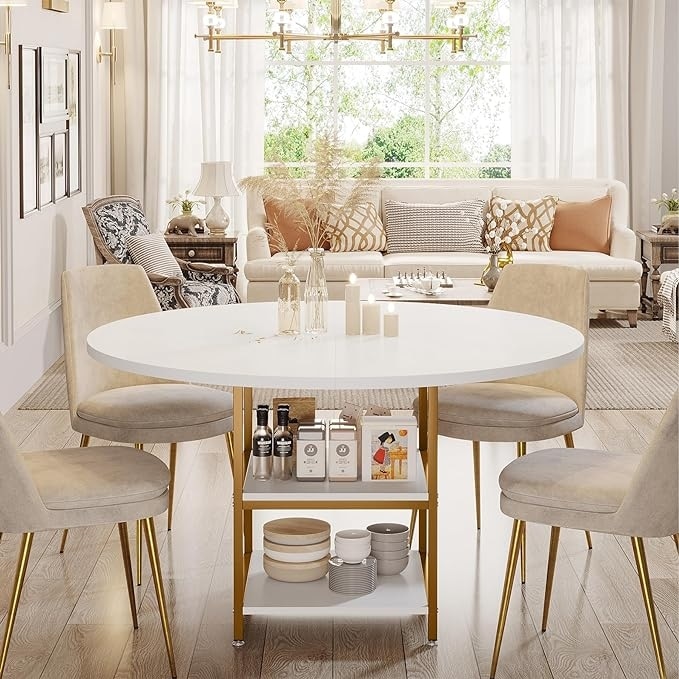Just How to Choose the Perfect Eating Area Table Legs for Your Home Decor
Picking the suitable eating space table legs is a nuanced process that calls for mindful factor to consider of different elements, including your room restraints, visual preferences, and practical demands. The interaction between materials, measurements, and styles can dramatically influence the ambiance of your eating area, making it essential to approach this choice methodically.
Assess Your Eating Area
Analyzing your eating space is crucial for picking the right table legs that complement both visual appeals and functionality. Begin by measuring the dimensions of your eating location, consisting of ceiling height, floor room, and distance to other furnishings. This information will aid figure out the suitable dimension and height of your table, which straight influences the selection of table legs.
Next, take into consideration the design and layout of your eating room. An open-concept style might profit from table legs that offer visual lightness, such as slim steel or acrylic alternatives. Conversely, a much more standard setup could call for sturdy wooden legs that supply a feeling of durability.
Review the existing shade scheme and products in your dining area. Harmonizing the table legs with these components develops a natural look that enhances the overall style.
Eventually, a complete evaluation of your dining space will certainly assist you in making a notified choice, making sure that your table legs not only improve the visual allure yet likewise serve practical objectives.
Consider Your Design Preferences
When choosing dining area table legs, it is vital to show on your personal design preferences, as they significantly affect the general aesthetic of your eating area. Your selection of table legs can either enhance or contrast with existing decor, making it vital to align them with your recommended interior decoration motif.
If your home leans towards a modern-day aesthetic, consider streamlined metal or minimal wooden legs that give a clean, minimalist look. For an extra conventional approach, elaborate wood legs with complex makings can add a touch of style and elegance. Industrial designs take advantage of durable, resources such as recovered timber and metal mixes, reflecting a tough beauty.
Furthermore, farmhouse and rustic designs frequently prefer sturdy, chunky legs that stimulate a sense of warmth and convenience. Conversely, if your design is diverse, you might select unusual shapes or a mix of materials to develop visual rate of interest.

Evaluate Product Options
The choice of material for dining room table legs plays a critical function in both longevity and aesthetic appeal. Typical materials include timber, steel, and composite options, each offering distinct qualities that can influence the general appearance and longevity of your table.
Wood is a timeless choice, known for its warmth and convenience. Woods like oak and walnut give exceptional strength and can be finished in numerous discolorations to match any kind of decoration. Softwoods like yearn are much more prone to damages and scrapes, making them much less suitable for high-traffic locations.
Metal legs, frequently crafted from steel or aluminum, show modernity and commercial appeal. They are resistant and very long lasting to use, making them suitable for family members with kids or regular gatherings (dining room table legs). In addition, metal can be finished in different colors, boosting the personalization possibilities
Composite products, such as MDF or laminate, offer affordability and varied designs. While typically much less durable than strong wood or steel, they can still offer a stylish look and are frequently very easy to keep.
Ultimately, the product you choose need to line up with your way of living, aesthetic choices, and the level of usage your dining table will certainly experience.
Determine Height and Size
Picking the suitable elevation pop over here and size for your eating room table is necessary for both functionality and comfort. The typical height for eating tables generally varies from 28 to 30 inches, allowing sufficient legroom for the majority of individuals when seated. Nevertheless, it is vital to think about the measurements of your dining area and the sorts of chairs you intend to use.

Moreover, take into consideration the percentages of your dining-room. A bigger table in a sizable area can create a grand ambiance, while a smaller table works well in more intimate setups. Inevitably, the appropriate elevation and dimension will certainly balance with your general decoration and improve the dining experience for you and your guests.
Explore Customization Possibilities

Furthermore, the design of the legs can be customized to fit different styles, such as rustic, modern-day, or commercial. As an example, conical legs can evoke a mid-century modern-day feeling, while chunky, block-style legs might resonate with typical or farmhouse decoration.
Homeowners can likewise explore shade finishes, from all-natural wood spots to paint, enabling them to match or comparison with the tabletop and bordering decor.
In addition, leg height can be adapted to accommodate certain seating arrangements or individual choices, improving both convenience and functionality.
Finally, unique embellishments, such as makings or decorative braces, can further customize the table legs, making the eating experience not just a meal yet a statement piece in the home. By taking into consideration these modification options, property owners can develop a dining-room table that genuinely mirrors their individuality.
Final Thought
Choosing the optimal dining area table legs calls for mindful consideration of different factors, including the measurements of the eating space, style preferences, material longevity, and desired height. Personalization choices better boost the ability to achieve a cohesive aesthetic that complements the general decoration. By methodically examining these components, home owners can ensure that the chosen table legs not only fulfill functional requirements but also contribute favorably to the eating experience and setting of the home.
Picking the excellent eating area table legs is a nuanced procedure that needs cautious consideration of different elements, including your space constraints, visual choices, and functional requirements.Examining your dining space is essential for selecting the right table legs that enhance both best site aesthetics and capability.When establishing dimension, determine the area where the table will certainly be put to ensure it fits comfortably, allowing for at the very least 36 inches of clearance around the table for simple movement. A bigger table in a large area can create a grand setting, while a smaller sized table works well in more intimate setups.Choosing the perfect eating space table legs requires mindful factor to consider of various variables, consisting of the dimensions of the eating area, design preferences, material longevity, and preferred height.